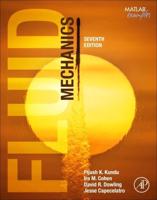Publisher's Synopsis
Rheology is, by common consent, a difficult subject and some of the theoretical components are often viewed as being of prohibitive complexity by scientists without a strong mathematical background. There are also the difficulties inherent in any multidisciplinary science like rheology for those with a specific training. Therefore, newcomers to the field are sometimes discouraged, and for them the existing texts on the subject - some of which are outstanding - are of limited assistance because of their depth of detail and highly mathematical nature.
This book introduces the subject of rheology in terms understandable to non-experts and describes the application of rheological principles to many industrial products and processes. It provides a simple but authoritative guide which shows clearly how mathematics, physics and chemistry have contributed to the development of rheology. The generic features of all liquid-like materials are summarised, i.e. viscosity, linear viscoelasticity, normal stresses and extensional viscosity. Particular systems are then discussed, i.e. polymeric liquids and suspensions. The final chapter gives an outline of the theoretical advances which have been made. Consistent notation and nomenclature have been used throughout the book, and the key textbooks and publications which will enable the reader to follow up particular topics are listed.








